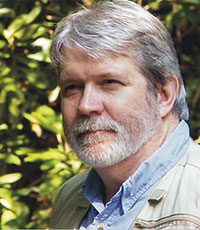By David A. Ramsey
(Note: This is an article from Dec. ’22, which might be worth another look by us all as we head into prime fishing season.)
What is simple ain’t always easy. It’s a truth that applies to so many things in life, including the act of doing the right thing. Ethics, in angling or almost anything we do, is that personal moral compass that points us in that “right thing” direction.
Too often, though, we ignore the reading and veer off course. Regularly failing to do the right thing defines a person even more than doing it. It’s one of the first things we consider about someone when getting to know them.
But it’s not that in a given situation, we consciously think to ourselves, “I want to do the wrong thing here.” It’s that we are highly skilled rationalizers. In a split second, we acknowledge the right thing and the wrong thing, tell ourselves we really are good people, then justify our wrong actions with being short on time or not wanting the little extra hassle or because—and yeah, I’ve actually heard this— it somehow has something to do with the evil (pick your political party) trying to take away our freedoms.
I once heard someone say their personal motto was, “Do the right thing, right now.” Pretty good motto—tough—but pretty good, huh? It’s a concept we could stand to follow a whole lot more in our sport. Teddy Roosevelt, our greatest outdoor-loving, conservation-preaching president, said, “To educate a person in mind and not in morals is to educate a menace to society.”
There are several angling ethics lists out there, some of which are pretty solid, some too long and redundant. I think it really boils down to just a few basic things we can do to make our sport, our natural/recreational resources and ourselves, as anglers, a lot better.
THE ANGLER’S CODE OF 7:
- Respect other anglers and recreational users
- Follow the laws and rules of the water
- Respect and protect all natural resources at all times
- Keep only fish that will definitely be eaten
- Make every effort to quickly release fish unharmed by hook or hand
- Give aid and assistance to those in need
- Give back to the sport via the three S’s: Sharing, Service and Stewardship
I know a lot of sportsmen who have lived honorably by these principles for most of their lives. Conversely, I know too many other ol’ boys who still live to run wide-open, “rip lips” and run up numbers—fish, environment and other fishermen and recreationists be damned. The longer I live, the more I want to be remembered in the company of the first group—and for never missing a chance to call out the second.
David Arthur Ramsey is an outdoor photographer, writer and conservationist, born and raised in the mountains of northeastern Tennessee. His outdoor writing and photography have been published locally, regionally and nationally and are most often associated with work to preserve and protect threatened lands and waters throughout the Southern Appalachian Mountains. Field and Stream Magazine and Toyota Motor Company named David the National Hero of Conservation in 2011 for his leadership in saving the 10,000-acre Rocky Fork watershed in northeastern Tennessee. His newly published book, Rocky Fork: Hidden Jewel of the Blue Ridge Wild, tells the story, through his rich photography and his first-hand account, of the more than decade-long battle to preserve this Appalachian and American treasure.
